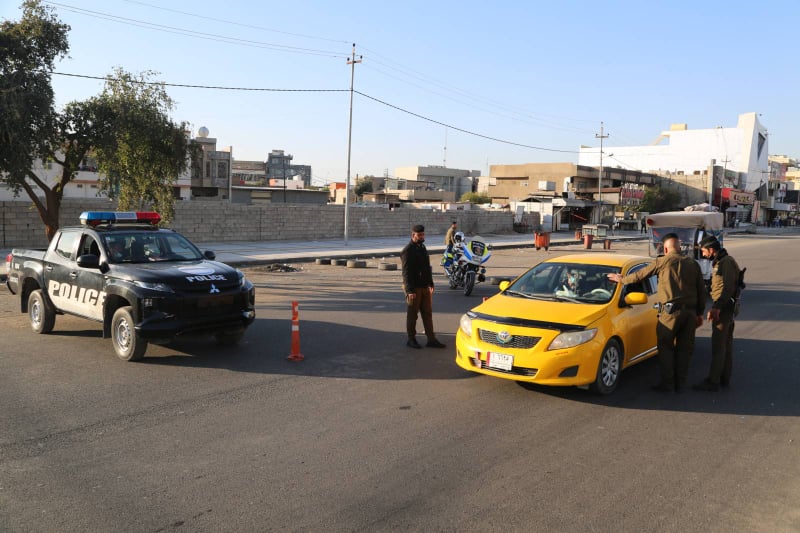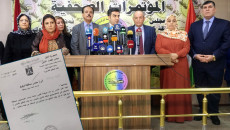A number of Kurdish officers and policemen in Kirkuk are scheduled to be tried on Thursday August 4th, for charges of participating in the referendum held in the Kurdistan Region and the disputed territories back in September 2017.
The officers and employees of Kirkuk police command were sent to the Mosul court-martial several times last year, but were later released and some of their cases have not yet been finalized.
"The military court will be held tomorrow (Thursday) for the first time in Kirkuk to try the officers and employees who participated in the independence referendum," a senior security source told KirkukNow on the condition of anonymity.
"There was no proof against some of them so they have been released and tomorrow's trial will not include those,” he added.
"The number of officers and employees who will be tried tomorrow is small and the trial will be held at the Rahimawah police station.”
The case was opened on October 16, 2017, a month after the Kurdish referendum for independence, but was temporarily suspended by political decisions until March 17, 2021, with the approval of the Iraqi Interior Minister.
There is no military court in Kirkuk to try officers and employees of the security forces of both the Ministries of Defense and Interior.
"Most of the officers and employees who will appear before the military court tomorrow did not participate in the independence referendum," another source in the Kirkuk police command anonymously said.
Iraqi ministry of interior on March 17, 2021 dictated Kirkuk police directorate upon approval of the minister, those officers to be charged by Iraqi penal code 111 of (crimes against national security) for being separatists, supporting the Kurdistan region referendum for independence held in the three northern provinces plus areas outside the Kurdistan Regional Government’s KRG administration, including the northern oil-rich, multi-ethnic city of Kirkuk.
Most of the officers and employees who will appear before the military court tomorrow did not participate in the Kurdistan Region's independence referendum
The trial is held in Kirkuk at the request of Lieutenant Kawa Gharib, the police commander of Kirkuk province, the anonymous source said.
"We faced obstacles when we went to Mosul, sometimes Erbil would not allow us to pass in our military vehicles," a lieutenant officer told KirkukNow.
"The military court of the federal government holds trials once a week in Kirkuk province," a senior source in the Interior Ministry told KirkukNow.
Iraqi government called on the Kurds for dialogue and urged them to cancel the results. Iraqi troops ousted Kurdish troops in October 2017 upon request of Iraqi parliament to deploy federal army in the disputed territories the Kurds were controlling, part of it since fall of Saddam regime in 2003 and others following the so-called Islamic State ISIS control of one third of Iraq in 2014.

Earlier, Kirkuk Naw reported that 49 officers were sent to Mosul military court on charges of participating in the referendum, including ranks of brigadier, colonel, lieutenant, sergeant, lieutenant, and first sergeant, whose names were not revealed by KirkukNow, currently in different departments and units of the Kirkuk Police General Directorate.
The referendum in the Kurdistan Region and the conflict areas on September 25, 2017, was supported by 92% of the voters; However, 21 days later, on October 16 of the same year, Iraqi forces returned to Kirkuk and all the disputed territories, and the results of the referendum were suspended under pressure from Baghdad.
Kirkuk, located 238 kilometers north of Baghdad, is an ethnically mixed province for 1.7 million Kurds, Sunni and Shiite Arabs, and Turkmen. It has long been at the center of disputed territories between Baghdad and Erbil.
The international community urged the Kurds to halt the referendum, concerned about its potentially destabilizing effects on the war-torn Iraq, particularly on the battle against ISIS.
Kurds, the fourth-largest ethnic group in the Middle East, have never obtained a permanent nation state. Iraqi Kurds, make up an estimated 15- 20% of the population, have faced decades of repression before acquiring semi-autonomy in 1991.





